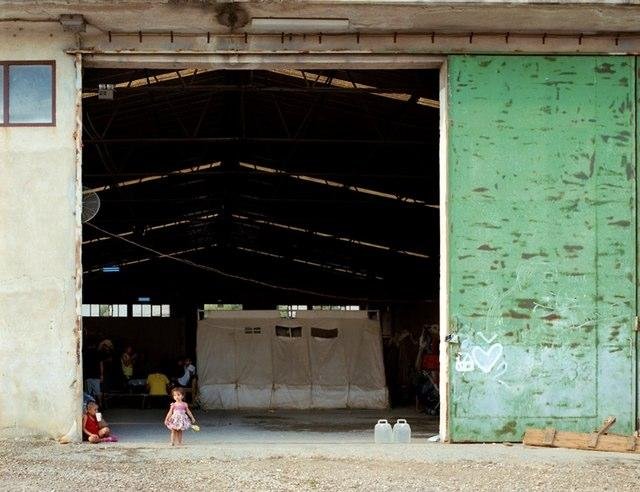A still from the film "Refuge," shot at Vasilika refugee camp, Greece. Image courtesy of Marcelo Biglia
VASSILIKA REFUGEE CAMP, Greece -- Thousands upon thousands of asylum seekers remain in militarized camps and detention centers across Greece.
With bureaucratic bottlenecks, relocation and family reunification within the European Union has become nearly impossible. Meanwhile, an austerity-stricken Greek economy is overwhelmed by migration influxes.
In the aftermath of evictions from various informal camps in northern Greece earlier this year, many refugees were relocated to abandoned factories around Thessaloniki. Conditions are dire in the majority of these venues – though they are ostensibly catered for by the Greek government. Given this humanitarian vacuum and lack of effective services from authorities, self-organized groups and bands of volunteers have attempted to provide basic support to those living in a seemingly endless state of waiting.
Refuge, a short piece filmed in Vassilika camp in late July, offers glimpses of the experiences of just four out of the tens of thousands who are stranded due to an incapacitated system.
Ella, a Kurdish student from Afrin in Syria, speaks of the humiliation of enforced dependency, the "slow death" of waiting and how the war has changed her, irrevocably, as a young woman.
Mohammed, her father, asserts his right to educate his children and to live a life of meaning. He reflects on the "promise of freedom, dignity and humanity" that brought them to Europe, and the injustice they have found instead.
Hassan, a student from Aleppo, addresses rising xenophobia and calls on European governments to stop arming and fueling the conflict in his homeland.
Raneem and Leila speak of their desires for their children to fully live their formative years free from fear and proximity to violent death and point out, "We didn't bring our children into this life to suffer."
All those interviewed emphasize the importance of social solidarity between those on the move that has kept them intact and given them the strength to continue onward with their difficult journeys.
With the ongoing securitization of EU borders, the future of those trapped in Greece is becoming increasingly precarious. Faced with rapidly deteriorating living conditions and the possibility of deportation, those with the means are once again relying on smuggling routes in an attempt to complete their journeys. With the lack of safe passage options, thousands of those making the journeys by sea and land will continue to die preventable deaths.
Caoimhe Butterly is an Irish peace activist and filmmaker, currently focused on refugee issues. This article originally appeared on Refugees Deeply, and you can find the original here. For important news about the global migration crisis, you can sign up to the Refugees Deeply email list.
![]()















